Outraged: T-Shirts and the 100-Year Fight for Women’s Equality
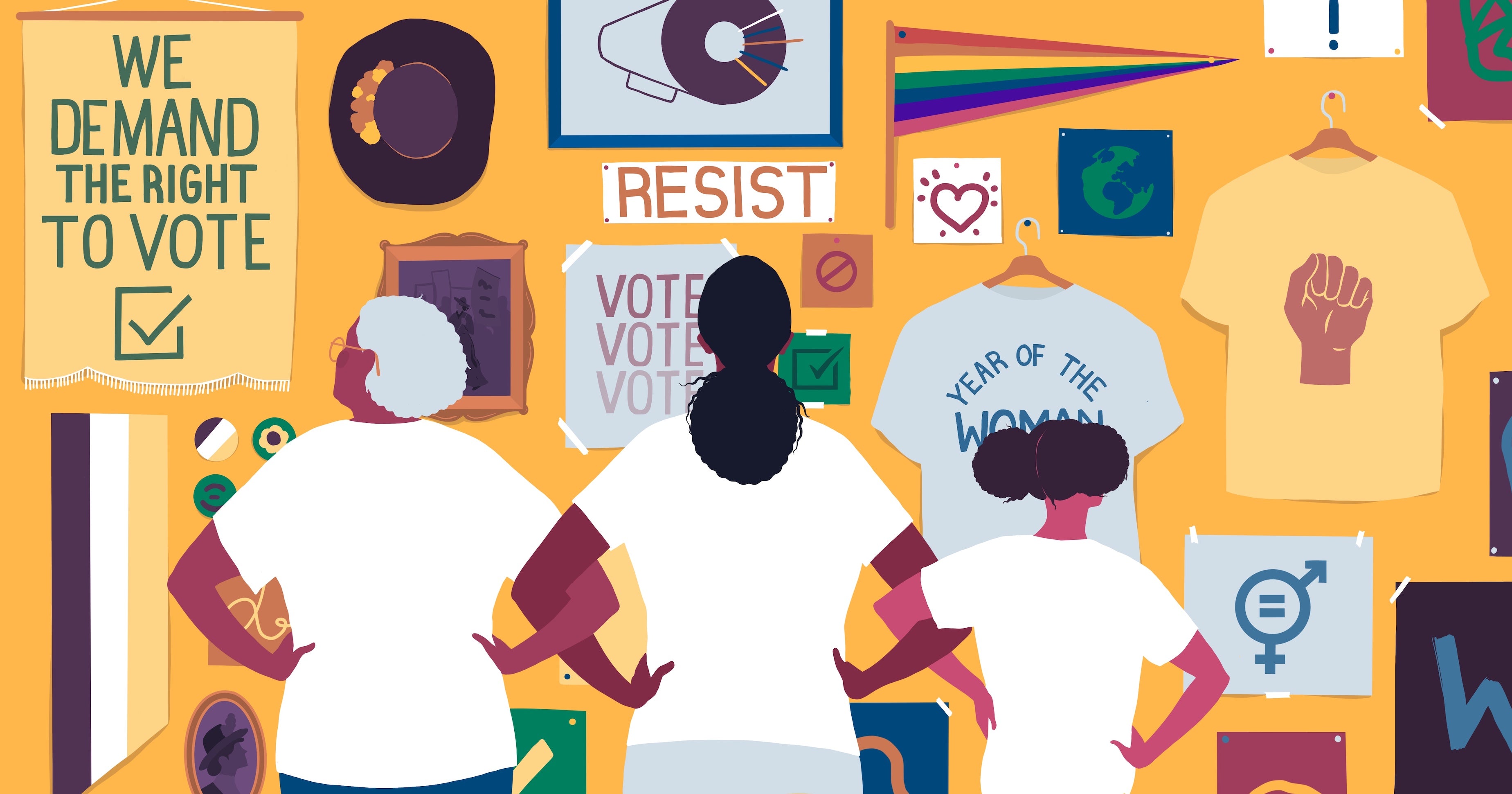 Women’s Equality Day is celebrated each August to mark the 1920 adoption of the 19th Amendment to the United States Constitution. The amendment granted white American women the right to vote (BIPOC would not officially have voting rights until the 1960s). Today, on its 100th anniversary, we mark the occasion by highlighting women founders who continue to fight for equality a century later.
Women’s Equality Day is celebrated each August to mark the 1920 adoption of the 19th Amendment to the United States Constitution. The amendment granted white American women the right to vote (BIPOC would not officially have voting rights until the 1960s). Today, on its 100th anniversary, we mark the occasion by highlighting women founders who continue to fight for equality a century later.
Rebecca Lee Funk prepared to launch her activist apparel brand in 2016 just as the first woman president was expected to be announced. “There was a bit of a plot twist,” she says. So she did what any new business owner faced with an unexpected challenge would do: she adapted. Rebecca introduced The Outrage to the world, along with a campaign to donate a portion of profits to Planned Parenthood—in Trump’s name. It went viral.
What started as an online apparel company with a bent for social good has become a hub for activism.
It’s been four years since the launch of the t-shirt that would cement The Outrage as a force in the activist space. The brand has been an official partner of every social and political movement, from March for Our Lives to Families Belong Together. What started as an online apparel company with a bent for social good has become a “hub for activism,” says Rebecca. “Fashion is one lever we pull on, and one of our major revenue streams, but it’s a small part of a larger mission.”
To understand how the brand got to where it is, let’s rewind.
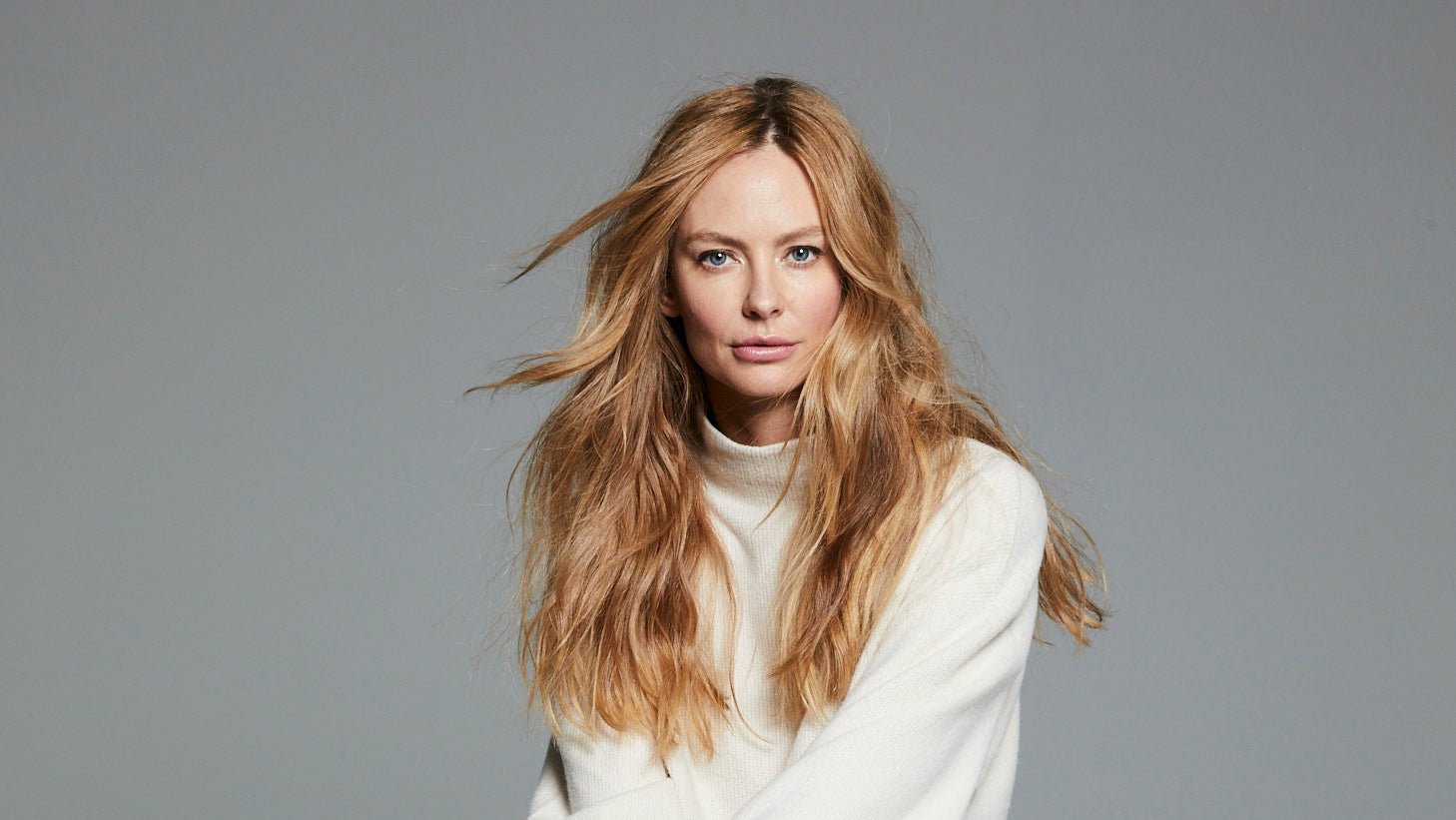
Rebecca’s past career as a development economist took her to places like East and West Africa and Guadalajara, Mexico. Though she was passionate about international development, she knew the role wasn’t a fit for her. “I wasn’t meant to sit for eight hours a day building econometric models and not talking to humans,” she says. On self-reflection, she remembered the thrill of her college side gig—a retail clothing store—and pivoted to join online marketplace Living Social’s ecommerce team in Washington, DC, but her employer soon sold that arm of the business.
Rebecca was unemployed but her then boyfriend (now husband) was working his dream job with the Obama administration. “I wasn’t going to pull him out of DC,” she says. “I was like, ‘Oh shit, what am I going to do?’” Around the same time, she was looking to buy herself a feminist t-shirt, ideally from a company owned by women and with an ethical supply chain and production practices. “Once you learn about that,” she says, “you can’t unlearn it.” But she came up short. So Rebecca spent months in libraries and coffee shops building what would become The Outrage, launching the online store at the height of the 2016 presidential election.
I care less about what you’ve done and more about what you’re capable of achieving.
The Outrage is woman-owned and staffed by a diverse team, intersectional in experience, identity, and beliefs—about two-thirds of the team is made up of women of color. When it comes to her hiring practices, Rebecca says, “I care less about what you’ve done and more about what you’re capable of achieving.” The store sells t-shirts and other merch (ethically produced, of course) emblazoned with phrases like “Trans People are People,” “Pay Me What You Owe Me,” and “Votes for Black Women.” Profits from each item support a specific cause in line with The Outrage’s core values.
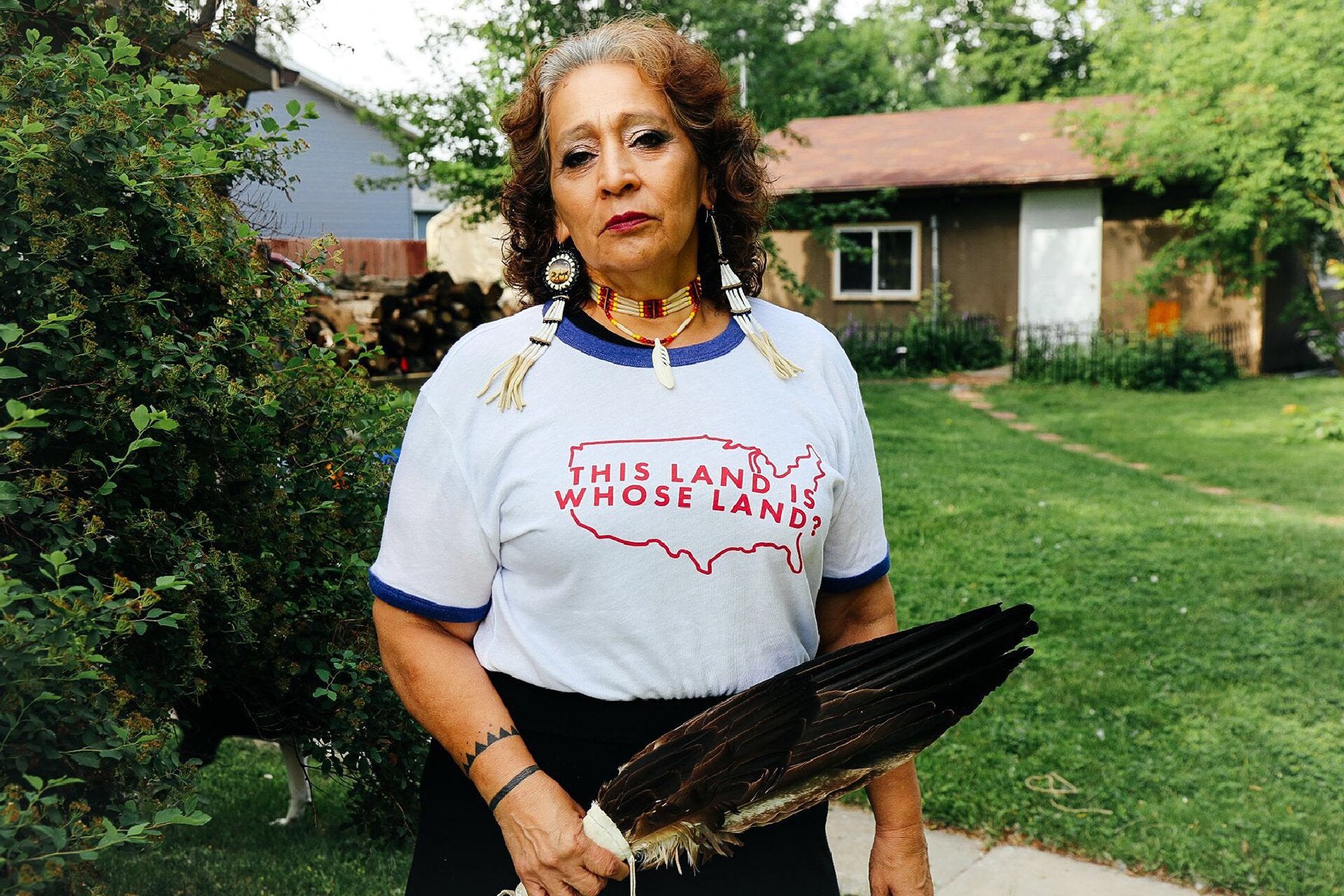
After the unexpected popularity of Rebecca’s Planned Parenthood campaign, orders started pouring in. “I was like, ‘Oh God, people think this is a real business,’” she says. “But it was just me in my living room.” Soon the merchandise was spilling into the hallway—and even the bathroom—of the apartment she shared with her husband.
The organizers of The Women’s March, which began as a global protest in 2017 following the presidential inauguration, took notice of The Outrage’s overnight success and reached out. Together, they planned a pop-up to use as a vehicle for fundraising. It was an overwhelming success, Rebecca says, to the point that “leading up to the week of the march we had four-hour lines.” The event raised hundreds of thousands of dollars for The Women’s March. The tip jar alone, she says, pulled in $26,000 for Planned Parenthood. But increased volume wasn’t the only challenge: “I was in my first trimester of pregnancy through all of this,” she says. “So I was puking everywhere.”
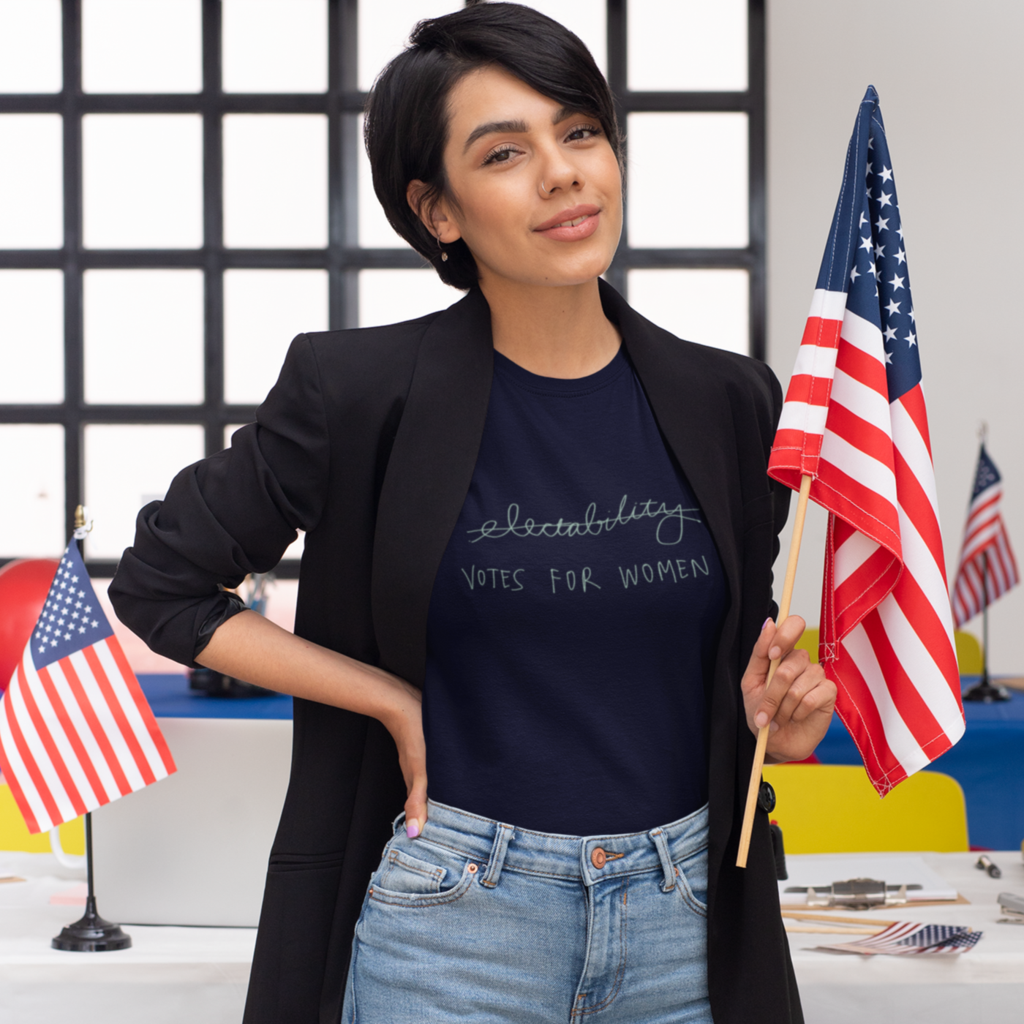
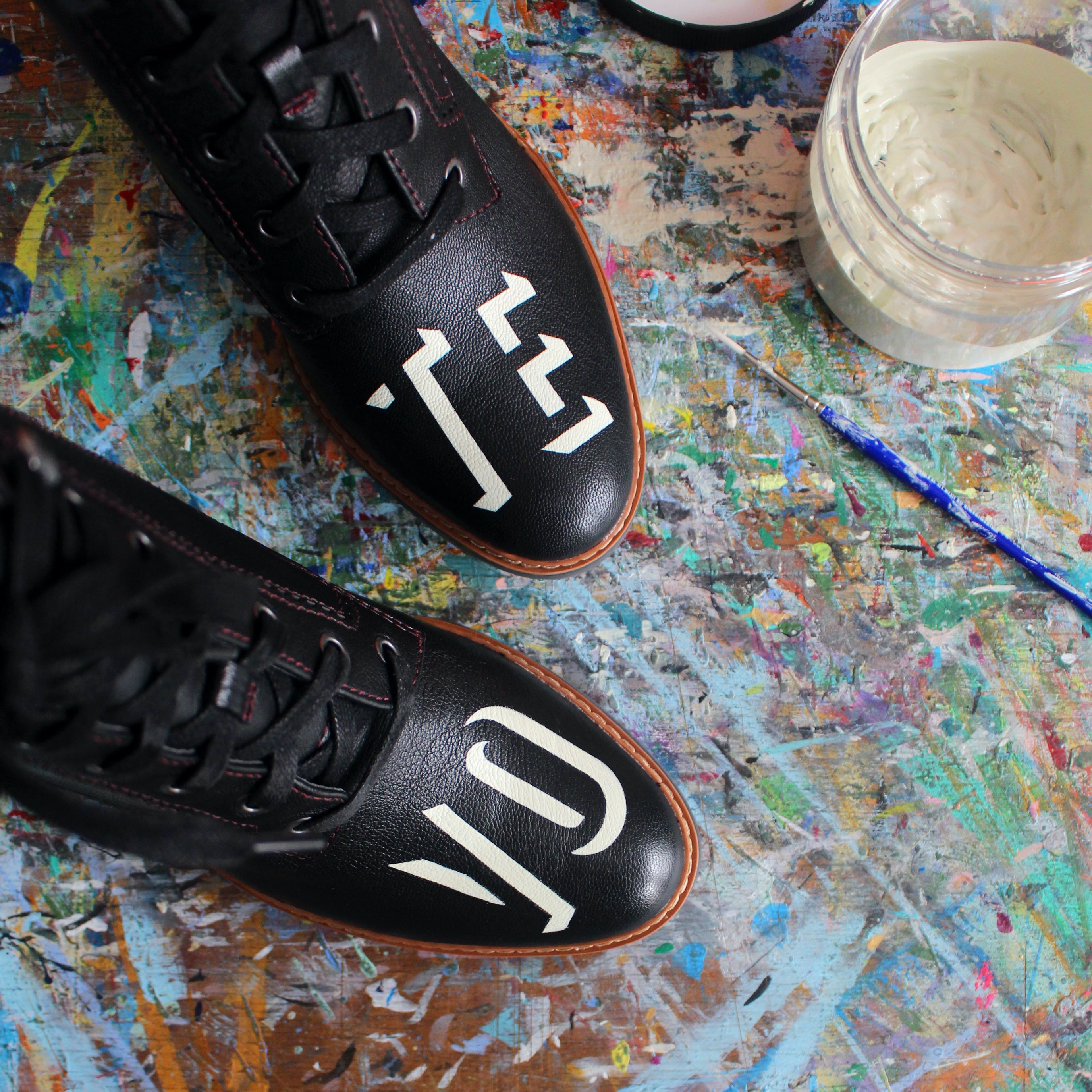
To keep the pop-up running, Rebecca had t-shirt printers in several states running their presses all through the night. Her friends called in sick to work to help out. And customers, hearing of her pregnancy nausea, brought saltines and ginger ale. Still, they couldn’t keep up with demand. Though the business was intended to stay online-only, Rebecca says, the pop-up provided “very real proof that we would succeed as a brick-and-mortar location.”
The sheer fact that women’s equality has been given a day highlights the need to be holding space for this issue in every single political discussion.
Today, The Outrage occupies two physical stores, one in Philadelphia and one in DC that includes a 2,000-square-foot community space. That space has been visited by big political names like Representative Ilhan Omar and Senator Kirsten Gillibrand. “In pre-COVID times we were hosting about five events a week,” says Rebecca.

Rebecca had her second child in February, compounding the stress of running a business (and a movement) with a new baby—in the middle of a pandemic. Though the events of 2020 have hit hard for many, Rebecca says that it hasn’t changed The Outrage’s mission and trajectory. “It has highlighted the urgency and importance of holding space for sustained civic engagement,” she says, “and amplifying the voices of the organizations doing the work every day.”
We’d like to center the women who were erased from history.
I ask Rebecca to weigh in on Women’s Equality Day. She is, after all, running a business dedicated to amplifying women’s issues and voices. Though the spirit of Women’s Equality Day is very much in line with her business, she says, “the sheer fact that it has been given a day—i.e., the implicit acknowledgment that women aren’t yet equal in our society—highlights the need to be holding space for this issue in every single political discussion.”
In honour of the 100th anniversary of the ratification of the 19th Amendment, The Outrage partnered with Naturalizer to launch a line of “VOTE” boots. “We knew a lot of brands would get it wrong,” she says. The 19th Amendment is mistakenly referred to as the event that gave women the right to vote—but in actuality, it excluded BIPOC women. “We'd like to center the women who were erased from history.”
With her boots laced, Rebecca is leading The Outrage as it expands its activist network across the US, just in time for the next presidential election. “Our marching orders are simple,” she says. “VOTE!”
Feature image by Alice Mollon